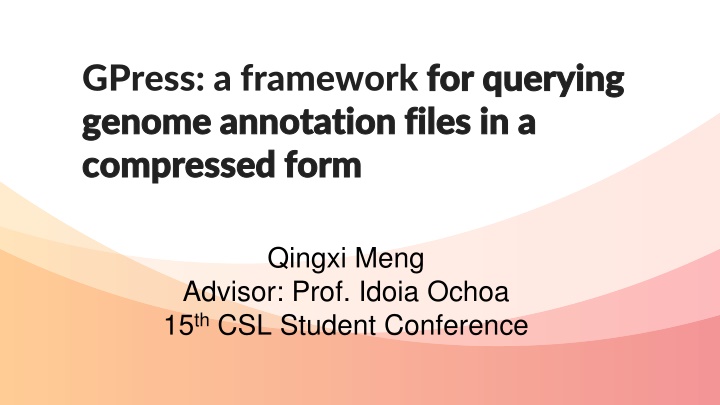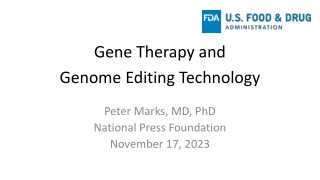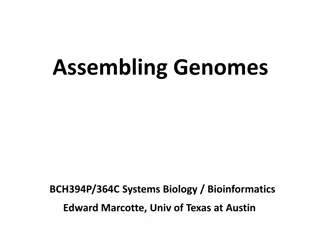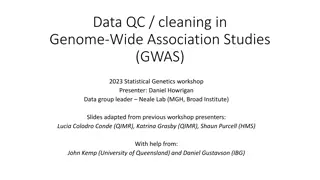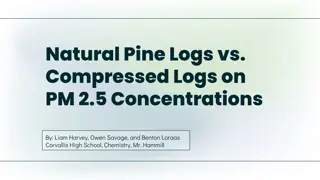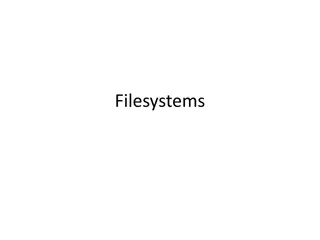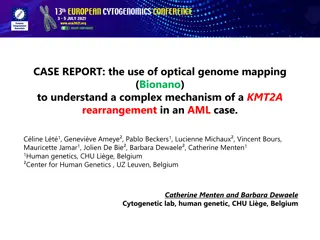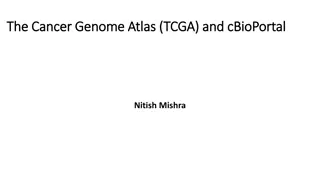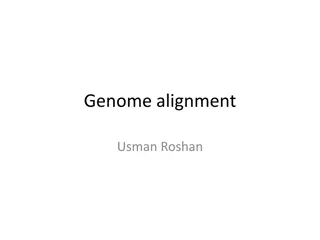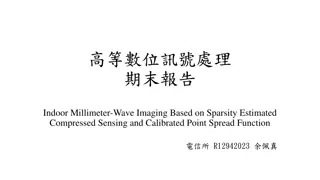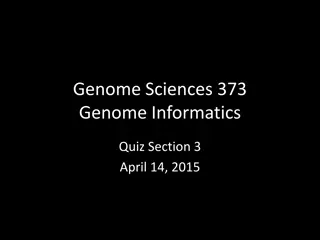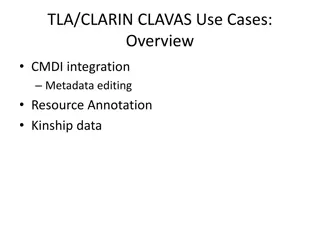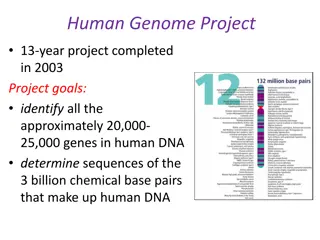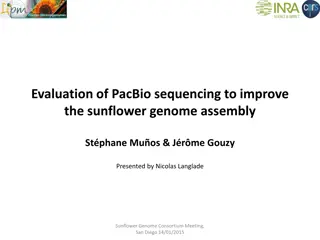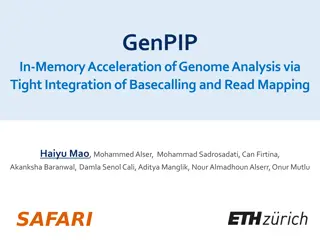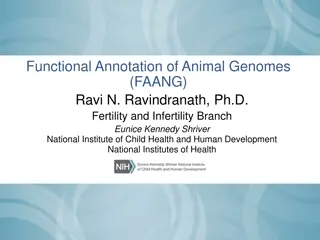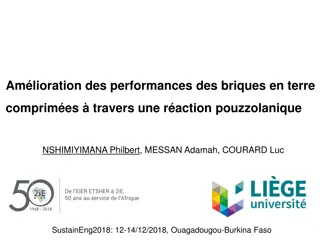GPress: A Framework for Querying Genome Annotation Files in Compressed Form
Genome projects generate large GFF files which require significant storage space. GPress offers a solution by compressing GFF files while allowing quick searches and random access. The framework addresses challenges faced by current GFF utilities, providing a more efficient approach to managing and querying genomic data.
Download Presentation

Please find below an Image/Link to download the presentation.
The content on the website is provided AS IS for your information and personal use only. It may not be sold, licensed, or shared on other websites without obtaining consent from the author.If you encounter any issues during the download, it is possible that the publisher has removed the file from their server.
You are allowed to download the files provided on this website for personal or commercial use, subject to the condition that they are used lawfully. All files are the property of their respective owners.
The content on the website is provided AS IS for your information and personal use only. It may not be sold, licensed, or shared on other websites without obtaining consent from the author.
E N D
Presentation Transcript
GPress: a framework for querying genome annotation files in a genome annotation files in a compressed form compressed form for querying Qingxi Meng Advisor: Prof. Idoia Ochoa 15thCSL Student Conference
Table of Contents 1. Motivations 2. Method Overview Compression Random Access 3. Extension to other files: expression files 4. Conclusion 2
1. Motivations
Many large genomic projects use GFF files 5000 Insect Genome Initiative (i5k) Plant Genome Intiative Genome 10K (G10K) 5
Challenges Storage of GFF files takes more and more space GFF files are frequently revised, annotated, queried and streamed 6
Current GFF utilities tabix: use a general compressor gffutils by python: don t compress data gffread: works directly on original file 7
Our framework: GPress Save Space: Save Space: compression of GFF files Supports quick searches: Supports quick searches: random access 8
2. Method Overview
seqname source feature start end score strand frame attribute chr1 HAVANA gene 11869 14409 . + . gene_id "ENSG00000223972.5"; gene_type "transcribed_unprocessed_pseudogene"; gene_name "DDX11L1"; level 2; havana_gene "OTTHUMG00000000961.2"; 10
Each GFF file consists of 9 columns of data Column 1: Seqname (string) Column 2: Source (string) Column 3: Feature (string) Column 4: Start (integer) Column 5: End (integer) Column 6: Score (floating point) Column 7: Strand (char) Column 8: Frame (integer) Column 9: Attribute (string) 11
Idea: divide the columns into different data streams seqname source feature start end score strand frame attribute chr1 HAVANA gene 11869 14409 . + . gene_id "ENSG00000223972.5"; gene_type "transcribed_unprocessed_pseudogene"; gene_name "DDX11L1"; level 2; havana_gene "OTTHUMG00000000961.2"; 12
Results Average a 98% reduction in original file But we still need to decompress the whole file for searches Idea: compress in blocks 14
Results ID search Given an ID (e.g. ENSE00003486434.1), the GPress can print out the item s information in around 2.5 seconds. Range search Given a range of coordinates (e.g. 10000 to 100000), the GPress can print out all items in around 4.5 seconds. 16
3. Extention to other files
Expression Files ENST00000567887.5|ENSG00000004059.10|OTTHUMG00000023246.5|OTTHUMT0 0000059567.2|ARF5-001|ARF5|1103|protein_coding| 01c9c486-321f-4ebc-ade7- bbe6ea5c4a6e 5060.01331481811 142.006325562341 892.1653 1103 Column 1: target ID Column 2: sample Column 3: EST counts Column 4: tpm value Column 5: effective length Column 6: length 18
Results Reduce expression file size by more than 68% compared to gzip. Retrieves the information within seconds. 20
4. Conclusion
Conclusion Average a 98% reduction in original GFF file Around twice better than gzip Supports queries in seconds Can support expression files 22
Future Work: Other annotation files with similar structure WIG files VCF files BED files . 23
Thanks! Any questions? 24
